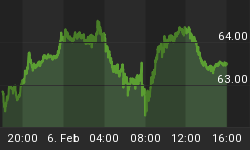The Organization for Economic Co-operation and Development(OECD) is apparently worried about accelerating inflation and is now in favor of raising interest rates. Nobel laureate economist Paul Krugman hates this idea and argues for its opposite, excerpted below:
Inflation and Debt (Wonkish)
...So, what's wrong with [the OECD thesis]? I see at least three things wrong.
First, the report writes as if a period of 4 percent inflation rather than 2 percent inflation would be a terrible thing, highly disruptive to the economy. Um:
Yes, it would be really horrible if we had inflation at the same rate as prevailed during Morning in America.
Second -- and this is technical but important -- the OECD assumes that higher inflation would be reflected one-for-one in higher interest rates. This is a good assumption in normal times -- but the whole reason we're in such a mess is the fact that short-term rates are up against the zero lower bound, that is, that we're in a liquidity trap. This means that short-term rates would not rise at all for some length of time if we had higher inflation, and that long rates, which reflect expected short rates, should rise less than one for one. In fact, that's one of the main arguments for higher inflation when you're facing a zero lower bound: it would reduce real interest rates. So the benefits for the public debt burden would be larger than the estimates suggest.
Third, public debt is not our only problem -- in fact, it's not the core problem. The key problem is, instead, the overhang of private debt:
And a period of modestly higher inflation would help reduce that private debt overhang, which would help promote economic recovery, which would in turn raise revenues and help the fiscal situation.
In sum, the case for higher inflation is vastly better than the OECD is willing to acknowledge.
Some thoughts:
The idea that it's okay to debase a nation's currency to lower the burden of debt voluntarily taken on is a perfect example of the technocrat mindset, which is that the world is a moral vacuum made up of levers that can be pulled to gain a given result. We do this, and the immediate result is that. No need to worry about secondary results -- or moral/ethical dilemmas for that matter; we'll just deal with them as they occur by pulling other levers.
But the world isn't a moral vacuum. As James Turk and I put it in 2004 in "The Coming Collapse of the Dollar":
Sound money is, after all, an ethical as well as economic issue. Our currency is the promise we make to ourselves, our children, and our trading partners that our word is and will be good, that the value we receive today will be repaid with equal value in the future.
When you debase your currency in order to avoid paying your debts, you're shifting that burden to your creditors by diminishing the value of their assets -- i.e. their loans to you or their holdings of your currency. You've broken a promise to them. You've also betrayed the savers who instead of spending every dollar they made, socked some away so they could have a dignified retirement and avoid becoming a burden on their kids and society. Savers are the real, unsung victims of technocrats' inability to see beyond the initial effects of their lever-pulling.
America's decision to renege on its promises by debasing the dollar will reverberate for decades because in economics, as in the rest of life, once you start breaking promises your credibility evaporates. In a fiat currency world especially, where nothing is real and everything depends on credibility, history teaches that persistent inflation is often fatal.
You can bet that when today's chickens come home to roost, the next generation of technocrats will point to levers labeled "capital controls", "confiscation," "wealth tax", and "war", while assuring us that the benefits will vastly outweigh the costs.















